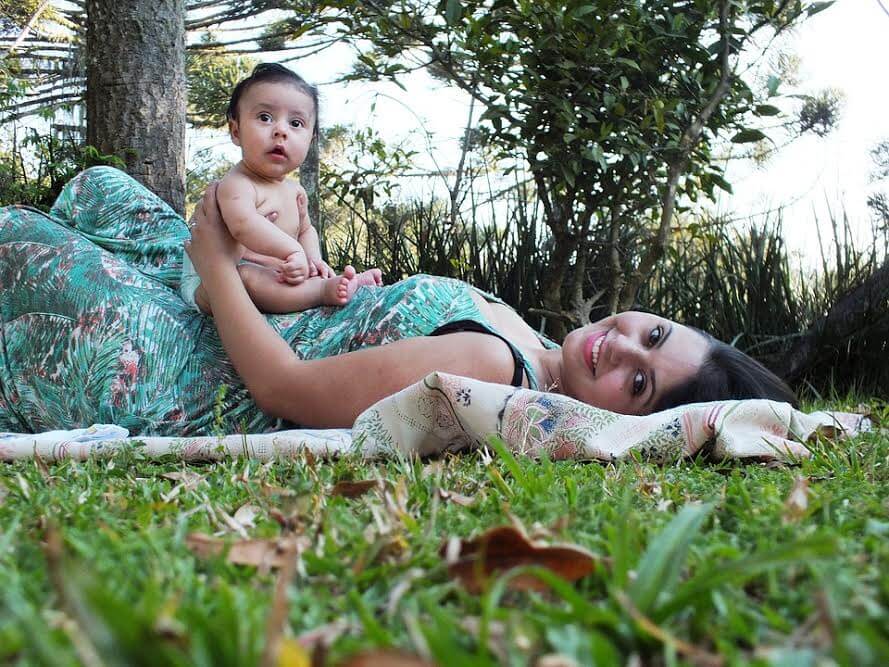Advice for First-Time Parents

Since first-time parents can run into a lot of challenges, we prepared a list of useful tips that can help.
Being a parent is one of the most complicated tasks there is, especially when it comes to the first child. There are many challenges that we’ll have to face.
Little by little, as they grow, they’ll teach us many things along the way. It’s an incredible experience that makes us grow as people and also leads to many changes in our lives.
When we have doubts as parents, we can go directly to the internet or talk with other parents who have more experience.
Their advice can help us dispel some of our concerns. They can also give us knowledge and help us be a bit more prepared.
How do you know when the baby is hungry? When do they want their pacifier?
These are just a few of the aspects that aren’t easy to identify, however with a little experience you’ll get the hang of it.
Tips for first-time parents
- Babies have very small stomachs, therefore, the amount of milk we should give them should be little. Pediatricians recommend that breastfeeding should occur as the baby demands it. The only exception to this rule is during illness. There are also children who fall asleep while they’re feeding. When this occurs, simply move the nipple a little bit and they may continue feeding.

- If you decide not to breastfeed your baby, the baby must learn how to bottle-feed. The bottle should be given to the baby by the same person every time. This should be done since different people would give the bottle in different ways and the baby will find it hard to adapt. Don’t worry if they cry after feeding, they may just be curious about their environment. They may also have gas.
- When the baby finishes feeding, lay them down on their back. This is the safest position for them to adopt, it also helps alleviate their gas. This position should also be adopted in their crib since it helps prevent sudden death syndrome.
- Milk stains are difficult to avoid during this stage and they tend to smell bad. In order to eliminate these stains, mix water and yeast (one teaspoon in one cup of water). This will help remove both the stains and the bad odor. Another good way to take out stains is using lemon juice.
- Another great tip for first-time parents is to be aware of their baby’s weight. In the first 5 months, children duplicate their weight until the end of their first year. During the first year they can even increase their weight 3 times fold. You don’t have to weigh your child every day. If you see that they’re active, growing and happy, it means they’re eating well.
- If the baby is still very small, they may get scared if you get close to them too quickly. In order to approach them you should first establish eye contact to get their attention. After you get their attention you can speak to them and get closer to them little by little. Then you can put your hands under their head and their torso to lift them up delicately. Yes, they’re fragile but it’s important to hold them firmly.

- It’s important to change the baby’s diapers often in order to prevent them from getting irritations. Although many diaper brands are designed to keep them dry, the heat that these diapers produce may cause their belly area to get irritated. When you have to change them, you must be very attentive to their movements. Don’t change their diapers in an area where they may fall. Before putting on a new diaper make sure they’re clean and dry.
- If you have twins, it’s normal for them to cry more than other babies since they have to wait their turn. You can place each baby on a breast at the same time and then later you can interchange them. They should be fed when they demand food.
- During the first weeks you can bathe them in the sink or a little special baby bath tub. At first, wash them with warm water and neutral soap. Baby powder isn’t recommended since the baby might accidentally inhale it. If your baby is afraid of the bathtub, you can sit them down and provide a toy to distract them.
- Regarding the umbilical cord, you don’t have to put on a special bandage when it’s healing. When bathing the child, dry their naval area properly. You can wash the area with a damp towel and warm water then dry it later. If you notice any bleeding, consult your pediatrician.
- Another great tip for first-time parents has to do with the baby’s clothing. Avoid over dressing the baby, they may get too hot. Of course we all love dressing up our babies, however we shouldn’t make them feel bad. Dress them appropriately for the weather.
- When it comes to carrying the baby, parents must be very aware of the position of the baby’s head. The baby’s head should be held firmly, safely and delicately. They get scared if their head moves backwards.
- A baby’s nails grow very quickly. It’s best to cut their nails when they’re asleep. Use special clippers with rounded tips. Remember that their nails are a lot more delicate than those of adults, that’s why you must trim them very carefully.
- When the baby cries, try to respond to them as soon as possible. The smaller the baby is, the faster we should react. This kind of attention has nothing to do with “spoiling” them. It’s about your child feeling that you’re always there for them.
- Some babies cry for a long time and this is usually caused by colic. During these situations don’t lose your cool or stress too much, it’s a phase and it will pass.
When you have any doubts, don’t hesitate, ask your doctors and other experienced parents.
All cited sources were thoroughly reviewed by our team to ensure their quality, reliability, currency, and validity. The bibliography of this article was considered reliable and of academic or scientific accuracy.
- Asociación española pediatría. Guía práctica para padres. Extraído de: https://enfamilia.aeped.es/sites/enfamilia.aeped.es/files/guia_practica_padres_aep_1.pdf
- Diario de Ibiza. Los 10 libros imprescindibles para los padres. Extraído de: https://www.diariodeibiza.es/cultura/2016/04/29/10-libros-imprescindibles-madres/838697.html
- UNICEF. Bienvenido bebé. Extraído de: http://files.unicef.org/uruguay/spanish/bienvenido_bebe.pdf